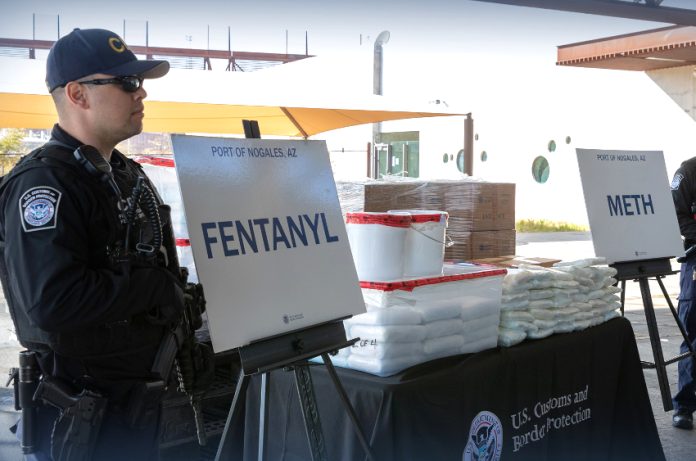The United States government is ramping up its fight against the entry of illegal fentanyl from Mexico with a new law enforcement operation that will target the illicit activities of cartel leaders known as plaza bosses.
U.S. Customs and Border Protection (CBP) announced Wednesday that it will lead Operation Plaza Spike, “an expanded, multi-agency effort to target the transnational criminals funneling fentanyl from Mexico into American communities.”
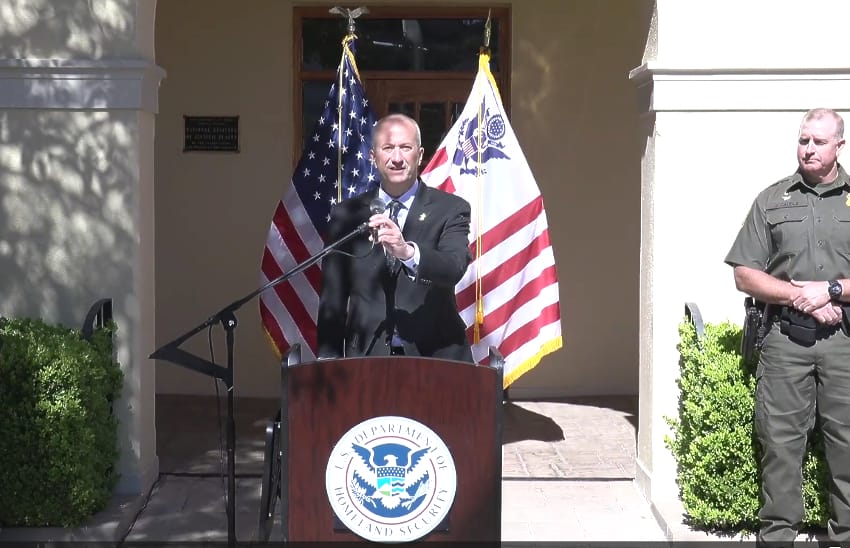
According to CBP, Operation Plaza Spike is “designed to disrupt operations in the ‘plazas,’ cartel territories located directly south of the United States that are natural logistical chokepoints within the cartels’ operations.”
The CBP described the operation as a “next phase” or “next step” in its Strategy to Combat Fentanyl and Other Synthetic Drugs.
“Operation Plaza Spike will employ multiple tactics, including seizing illicit proceeds and scrutinizing related cross-border business entities and cross-border trade. Operation Plaza Spike includes releasing the name of the plazas’ senior ranking cartel officials, the ‘plaza bosses,’ to increase public and law enforcement pressure on them,” the agency said.
“… CBP will leverage partnerships, authorities, and resources of other government agencies in our efforts to gather intelligence, disrupt and degrade illicit operations, and deliver legal consequences.”
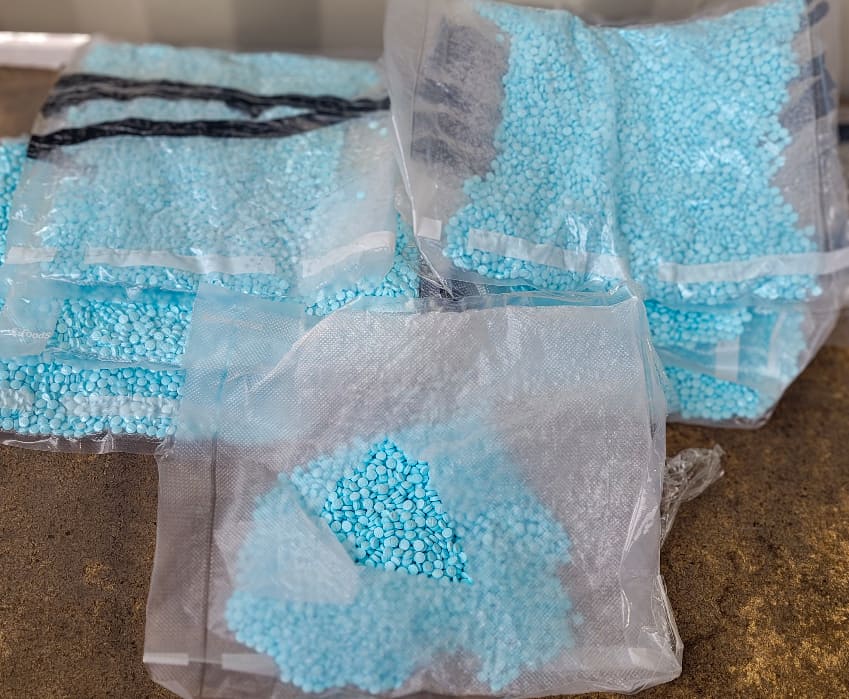
The first target of the new operation is the “Nogales Plaza,” located south of Nogales, Arizona, in the state of Sonora. U.S. authorities say that the Sinaloa Cartel boss of that plaza is Sergio Valenzuela Valenzuela, a 54-year-old alleged criminal known as “Gio,” “El Gigio” and “Yiyo.”
Valenzuela “heads the plaza responsible for the most fentanyl heading to the U.S.,” the CBP said in an Operation Plaza Spike fact sheet, asserting that “he and his organization are responsible for 44% of the fentanyl being trafficked to the U.S., the deadliest drug we have yet to encounter.”
The CBP noted that he was indicted by a U.S. federal grand jury in 2018 for his role as a Sinaloa Cartel plaza boss.
Troy A. Miller, the CBP’s top official, said that while Valenzuela “is the first plaza boss that we target,” he “won’t be the last.”
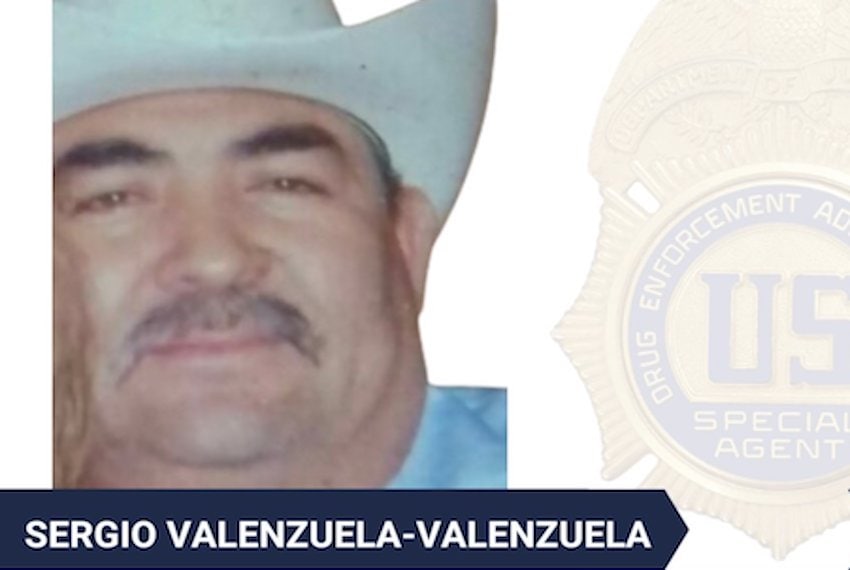
“Just as the men and women of CBP are steadfast in the fight against fentanyl, we will be unrelenting in our pursuit of those people and organizations that threaten the safety and security of our people and our country,” he said.
The CBP said that Plaza Spike will also limit “the number of illegal weapons headed southbound into the hands of the cartels.”
Mexico has long been pushing the U.S. to do more to stop the southward flow of weapons, many of which end up in the hands of members of notoriously violent cartels.
For his part, Secretary of Homeland Security Alejandro Mayorkas said Wednesday that Operation Plaza Spike is “a critical step in our ongoing whole-of-department campaign to directly attack the transnational criminal organizations that peddle narcotics, death, and destruction for profit.”
“We are sparing no effort to dismantle cartels and ensure everyone from kingpins to plaza bosses are brought to justice,” he said.
According to the CBP, there are 27 different cartel “plazas,” many of which are located “directly south of a U.S. border crossing.”
Plaza bosses, the agency said, are “high-ranking cartel officials who control all illicit activity through the plaza” including “extortion, kidnapping, and the trafficking of humans, dangerous drugs, and firearms.”
The CBP said that Valenzuela and his organization are allegedly responsible for moving “thousands of pounds of fentanyl to the U.S. border.”
“Nearly every day, CBP officers intercept fentanyl headed from Valenzuela Valenzuela’s plaza northbound through CBP ports of entry onward to cities across the United States,” it said.
FBI director: “We need much more” from Mexico to combat fentanyl
A day after the CBP announced its new operation, the director of the Federal Bureau of Investigation, Christopher Wray, spoke about U.S. cooperation with Mexico in the fight against fentanyl, which has caused overdose deaths of tens of thousands of Americans annually in recent years.
“We’re working with our partners on the other side of the border and there I would say it’s very uneven. We’ve had some instances where we’ve had a key arrest, an extradition, a key operation – we’ve started to work with vetted teams down there which is an important effort in the right direction, but we need much, much more than we’re getting from the Mexican government,” he said during an appearance before a House Appropriations subcommittee.
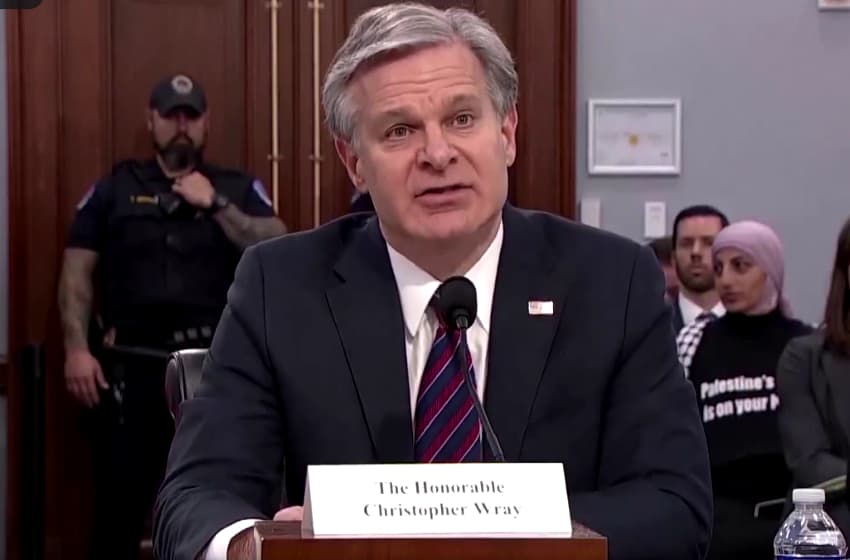
The Mexican government has said on repeated occasions that it is fully committed to the fight against fentanyl and is doing all it can to stop the flow of the powerful synthetic opioid into the U.S.
But Wray described Mexico’s efforts to combat fentanyl as a “mixed bag.”
“There are individual instances that are bright spots. But this is such a big problem. We need consistent, sustained, scalable assistance from them,” he said.
Other U.S. officials have publicly praised Mexico for its security cooperation, including in the fight against fentanyl.
At bilateral security talks last October, Secretary of State Antony Blinken said that “more than ever before” in his 30 years of experience in foreign policy, “the United States and Mexico are working together as partners in common purpose.”
The following month, during a meeting with President Andrés Manuel López Obrador in San Francisco, U.S. President Joe Biden declared that “nothing is beyond our reach in my view when Mexico and the United States stand together and work together, as we’ve been doing.”
